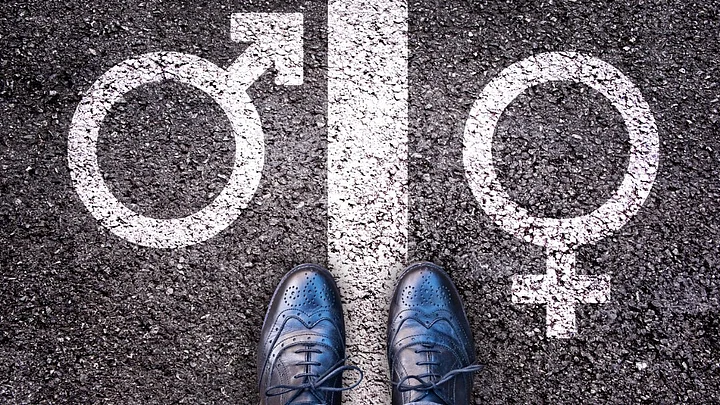If multivitamins and supplements weren’t enough to befuddle, add to it another layer - their gendered nature. It’s not uncommon to find over-the-counter multivitamins meant “only for women” or “only for men”. A look at their content would reveal that they don’t contain any hormonal ingredients. It’s the usual - vitamins and minerals. So, what do these labels and instructions mean? Are they more than just a marketing gimmick?
We reached out to three doctors and this is how they broke it down.
Do Men and Women Need Different Supplements?

The simple answer is yes. All three doctors unanimously agreed that since the male and female bodies are very different, they’re requirements from supplementation are different too.
Dr Vaibhav Mishra, Additional Director, Cardiac Surgery, Fortis Hospital Noida, says that men and women are intrinsically different. This is because the internal body processes of one differs vastly from the other.
There are four things that happen to a woman which do not happen to a man. These are menstruation, pregnancy, lactation and menopause. As a result of these, the nutritional requirements are different.Dr Vaibhav Mishra
Dr Vandana Boobna, Senior Consultant, Internal Medicine, Max Super Speciality Hospital, Shalimar Bagh, agrees with this and says that when indicated with age, gender, co-morbidities, supplements are very useful for the body. However several of these supplements are also marketed using gimmicks which is why they should never be taken without medical guidance.
Nutritional supplementation are not a substitute to good nutritious diet, but they are an essential part of medical care when indicated both for men and women. They have become a marketing gimmick because of availability of so many supplements, both expensive and cheap, the myth that people are healthier if they are on supplementation, even if not needed, and over the counter self-medication .Dr Vandana Boobna
What are These Gender-Based Differences?

Dr Mishra adds that during menstruation, a woman’s blood loss is significant. Her iron levels are depleted and she needs to supplement it in order to maintain a normal balance. Consequently, a supplement meant for women would have higher levels of iron as opposed to men.
While men require 8gm of iron in their blood on any given day, women require 18gm. When a woman is pregnant, she requires 27gm of iron in her blood. During pregnancy and lactation, the women requires supplements to maintain normal levels as she is playing host to another living entity. In post-menopausal periods, osteoporosis and arthritis, women might need to have supplements of D3 and calcium. Men are bulkier therefore they need more protein and calories.Dr Vaibhav Mishra
Dr Boobna also makes a mention of menopause and biological processes specific to a women’s body, thereby making their dietary demands very specific.
As females menstruate and become pregnant during their life and they age earlier than men due to menopause, their nutritional supplements are directed to maintaining heamoglobin, bone health, and care for their skin, hair and nails. Men, on the other hand, need supplementation for their muscle and bone health or when therapeutically indicated .Dr Vandana Boobna

Dr Abhilasha Jain says that though the calcium requirement for younger men and women is the same, it changes significantly with age, after 40 years, specifically. Post menopause, women experience a drop in estrogen, the hormone which prevents bone loss. Consequently, extra nutrition is required to make up for this deficit, adds Dr Jain. This is not the case for men.
She further comments on the hormonal aspects of these supplements, a point of concern when it comes to different supplements for the two genders.
Nutritional supplements available over the counter usually do not contain hormonal components. Few supplements used in body building may have these male hormonal components, which may have lots of side effects and might prove harmful if taken by females.Dr Abhilasha Jain
As a result, she concludes, this gender-based distinction is only logical.
Few micro-nutrients like thiamine, niacin also have different RDA (recommended daily allowance) in men and women. So, it seems logical to have different nutritional supplements in some situations.Dr Abhilasha Jain
What Happens When You Mix Them?

It should be clarified that not all supplements are gender-specific. There are some which are meant for everyone, irrespective of gender. However, none of them should be taken as part of self-medication.
Supplements should only be taken when indicated therapeutically or as support to medical diseases a person is suffering from. When taken over the counter , without guidance by a health expert, they have multiple harmful effects that include organ damage and toxicity without the person being actually aware of it all.Dr Vandana Boobna
All three doctors mostly agree that mixing gender-specific supplements won’t have lasting harmful effects.
Usually these supplements contain micro-nutrients, which are required in very low doses and the RDA is set in such a way that even chronic over-dosage may not cause toxicity. So, even if higher dosage supplements are taken by other gender for a short term, it may not be harmful.Dr Abhilasha Jain
Dr Mishra also says that it shouldn’t become a regular habit, for obvious reasons.
However, Dr Boobna has a word of caution if you take the wrong supplements for a long period of time.
Iron supplements for women when taken by men can be deposited in body organs and cause non-repairable damage to them. Similarly excessive Vitamin D3 and calcium can lead to stone formation and renal damage and failure. Similarly, women taking men’s supplements will not be able to meet their body requirements and will only experience a placebo effect at best.Dr Vandana Boobna
(At The Quint, we are answerable only to our audience. Play an active role in shaping our journalism by becoming a member. Because the truth is worth it.)
